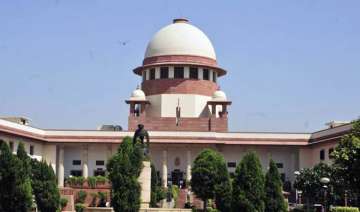New Delhi: In a historic judgment which could set precedent for future, the Supreme Court on Wednesday ordered restoration of Congress government in Arunachal Pradesh terming Governor's decision to advance the Legislative Assembly session by a month in December last as "unconstitutional".
All the five judges of the constitution bench were unanimous in setting aside the orders of Governor Jyoti Prasad Rajkhowa.
Here are 10 major points of 331-page landmark unanimous verdict by Justice J S Khehar, Justices Dipak Misra, M B Lokur, P C Ghose and N V Ramana:
1- All that needs to be said is that the events as they occurred with great rapidity...appear to be nothing more than a political circus.
2- Does the rule of law in our country permit the governor to throw constitutional principles and rules of procedure and conduct of business of the Arunachal Pradesh legislative assembly to the whims and summon the assembly to meet whoever or wherever he deems appropriate.
3- To make matters worse, and in a sense, humiliate the elected government of the day, the governor did ignore the resolution of council of ministers taken on December 14, 2015.
4- Twenty one MLAs from INC did not constitute a legitimate, recognisable break away group.
5- It is not within the realm of the Governor to embroil himself in any political thicket. The Governor must remain aloof from any disagreement, discord, disharmony, discontent or dissension, within individual political parties.
6- The activities within a political party, confirming turbulence, or unrest within its ranks, are beyond the concern of the Governor. The Governor must keep clear of any political horse-trading, and even unsavoury political manipulations, irrespective of the degree of their ethical repulsiveness.
7- Speaker is expected to have "independence, objectivity and fairness" in his decisions and it is his duty to see that the business of the House is carried out in a disciplined manner.
8- It does not lie within the domain of the Governor to interfere with the functions of the Speaker. The Governor is not a guide or mentor to the Speaker. The Governor cannot require the Speaker to discharge his functions in the manner he considers constitutionally appropriate. Both the Governor and Speaker have independent constitutional responsibilities.
9- We are of the view, that in ordinary circumstances, during the period when the Chief Minister and his Council of Ministers enjoy the confidence of the majority of the House, the power vested with the Governor under Article 174, to summon, prorogue and dissolve the House(s) must be exercised in consonance with the aid and advice of the Chief Minister and his Council of Ministers.
10- We have no hesitation in concluding that messages addressed by the Governor to the House(s) have to be in consonance with the aid and advice tendered to him.
Latest India News
